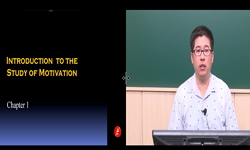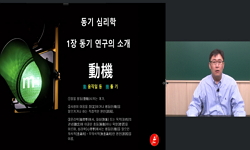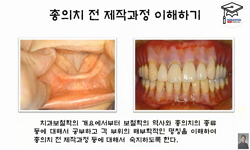The purpose of this study is to provide better understanding of self-regulation and implication for adult education by analyzing the recent literature that has been focused on self-regulation of adults. Specifically, 112 articles were reviewed which w...
http://chineseinput.net/에서 pinyin(병음)방식으로 중국어를 변환할 수 있습니다.
변환된 중국어를 복사하여 사용하시면 됩니다.
- 中文 을 입력하시려면 zhongwen을 입력하시고 space를누르시면됩니다.
- 北京 을 입력하시려면 beijing을 입력하시고 space를 누르시면 됩니다.
https://www.riss.kr/link?id=A105003282
- 저자
- 발행기관
- 학술지명
- 권호사항
-
발행연도
2009
-
작성언어
Korean
-
주제어
Self-regulation ; Motivation ; Adult education ; 자기조절 ; 동기 ; 성인학습 ; Self-regulation ; Motivation ; Adult education
-
등재정보
KCI등재
-
자료형태
학술저널
-
수록면
83-114(32쪽)
-
KCI 피인용횟수
14
- 제공처
-
0
상세조회 -
0
다운로드
부가정보
다국어 초록 (Multilingual Abstract)
The purpose of this study is to provide better understanding of self-regulation and implication for adult education by analyzing the recent literature that has been focused on self-regulation of adults. Specifically, 112 articles were reviewed which were published in the major educational and psychological journal indexed in Korea Research Foundation from 2000 to 2008 to investigate the trend and the major findings in self-regulation of adults. The results of this study revealed that the research themes reduced into 4 categories; (1) developing theoretical framework and models including defining constructs, and development pattern of self-regulation (2) measuring self-regulation (3) educating self-regulation (4) exploring relationship between self-regulation and other variables. This study found that the research on self-regulation of adults has been actively published in several journals; the Korean Journal of Educational Psychology, Journal of Educational Technology, the Korean Journal of Psychology. In addition, the most popular theme of research was the exploring relationship between self-regulation and other variables. However, very few studies have been conducted to explore the distinguished characteristics of self-regulation of adults from slef-regulation of children. Finally, it was suggested and discussed the implication for further research on adult education.
국문 초록 (Abstract)
본 연구의 목적은 성인을 대상으로 한 자기조절 연구의 국내 최근 동향을 분석하고 연구 동향의 변화를 이해하며 이를 통해 성인교육 발전에 시사점을 제공하는데 있다. 이를 위하여 2000년...
본 연구의 목적은 성인을 대상으로 한 자기조절 연구의 국내 최근 동향을 분석하고 연구 동향의 변화를 이해하며 이를 통해 성인교육 발전에 시사점을 제공하는데 있다. 이를 위하여 2000년부터 2008년까지 교육 및 심리학 분야를 중심으로 한국학술진흥재단 등재지에 발표된 성인을 대상으로 한 자기조절 연구 중 112편의 논문을 수집하여 분석하였다. 분석 결과, 첫째, 성인을 대상으로 한 자기조절 연구는 교육심리연구, 교육공학연구, 한국심리학회지를 중심으로 활발히 이루어졌고, 둘째, 자기조절 연구의 주요 주제는 크게 자기조절의 개념과 모형화, 자기조절의 측정 및 도구개발, 자기조절 교육방법과 효과성, 기타 변인과의 관련성인 것으로 나타났다. 이중 자기조절과 관련된 기타 변인들의 연구가 전체 연구의 67.9%를 차지하는 주요 연구 주제였다. 셋째, 성인의 자기조절 연구는 국외와 유사한 연구 주제를 중심으로 이루어진 반면, 성인의 고유한 자기조절의 특성을 다루는 연구는 적은 것으로 나타났다. 마지막으로, 연구내용과 관련된 자기조절의 측정 및 도구개발, 자기조절 교육방법과 효과성, 기타 변인과의 관련성을 중심으로 향후 성인을 대상으로 한 자기조절 연구의 지향점을 논의하였다.
참고문헌 (Reference)
1 한덕웅, "한국인의 인생관으로 본 가치관 변화:30년간 비교" 한국사회및성격심리학회 17 (17): 49-67, 2003
2 문병상, "학업적 자기조절 검사도구 개발" 한국교육평가학회 13 (13): 239-260, 2000
3 김형수, "학습자 특성 및 적용 영역별 인지학습전략의 효과" 교육과학연구소 37 (37): 43-74, 2006
4 배영주, "학교에서의 자기주도학습 구현을 위한 실천적 모형 개발 연구" 한국교육과정학회 26 (26): 97-119, 2008
5 정진원, "피아노 연습과정에서 나타나는 자기조절학습(Self-Regulated Learning) 성향에 관한 고찰- 중등 피아노 전공자를 대상으로 -" 한국음악교육학회 27 (27): 197-225, 2004
6 박혜옥, "프로젝트(Project)학습수행에 영향을 미치는 요인에 관한 연구" 한국기술교육학회 7 (7): 191-210, 2007
7 한지영, "평생학습 학습성과 평가를 위한 자기주도학습 준비도 검사도구(SDLRS)의 타당성 연구" 한국공학교육학회 11 (11): 64-75, 2008
8 박홍균, "컴퓨터 기반학습 환경에서 자기조절학습전략의 학습방법이 학습과정과 학습 성취에 미치는 영향" 한국교육정보미디어학회 7 (7): 1-16, 2001
9 서은희, "지연행동가들의 불안수준에 따른 자기조절학습의 차이" 한국교육심리학회 21 (21): 613-626, 2007
10 정현미, "지식생산공동체 설계방안에 관한 사례연구" 한국교육공학회 19 (19): 3-39, 2003
1 한덕웅, "한국인의 인생관으로 본 가치관 변화:30년간 비교" 한국사회및성격심리학회 17 (17): 49-67, 2003
2 문병상, "학업적 자기조절 검사도구 개발" 한국교육평가학회 13 (13): 239-260, 2000
3 김형수, "학습자 특성 및 적용 영역별 인지학습전략의 효과" 교육과학연구소 37 (37): 43-74, 2006
4 배영주, "학교에서의 자기주도학습 구현을 위한 실천적 모형 개발 연구" 한국교육과정학회 26 (26): 97-119, 2008
5 정진원, "피아노 연습과정에서 나타나는 자기조절학습(Self-Regulated Learning) 성향에 관한 고찰- 중등 피아노 전공자를 대상으로 -" 한국음악교육학회 27 (27): 197-225, 2004
6 박혜옥, "프로젝트(Project)학습수행에 영향을 미치는 요인에 관한 연구" 한국기술교육학회 7 (7): 191-210, 2007
7 한지영, "평생학습 학습성과 평가를 위한 자기주도학습 준비도 검사도구(SDLRS)의 타당성 연구" 한국공학교육학회 11 (11): 64-75, 2008
8 박홍균, "컴퓨터 기반학습 환경에서 자기조절학습전략의 학습방법이 학습과정과 학습 성취에 미치는 영향" 한국교육정보미디어학회 7 (7): 1-16, 2001
9 서은희, "지연행동가들의 불안수준에 따른 자기조절학습의 차이" 한국교육심리학회 21 (21): 613-626, 2007
10 정현미, "지식생산공동체 설계방안에 관한 사례연구" 한국교육공학회 19 (19): 3-39, 2003
11 배을규, "중산층 전업주부의 자기주도적 학습 과정 특성" 한국성인교육학회 9 (9): 261-300, 2006
12 김교헌, "중독과 자기조절: 인지신경과학적 접근" 한국건강심리학회 11 (11): 63-105, 2006
13 김교헌, "중독, 그 미궁을 헤쳐 나가기" 한국건강심리학회 12 (12): 667-693, 2007
14 이서정, "정서인식의 명확성과 인지적 정서조절이 정신건강에 미치는 영향" 한국건강심리학회 13 (13): 887-905, 2008
15 육근영, "자아 일관성과 주관적 안녕감자아 통제감의 매개효과를 중심으로" 한국심리학회 산하 한국발달심리학회 19 (19): 47-65, 2006
16 문병상, "자기효능감 수준에 따른 자기조절학습전략 훈련이 수학문장제 수행에 미치는 효과" 초등교육연구소 13 (13): 67-86, 2000
17 권성연, "자기조절학습의 단계와 구성요인의 규명" 한국교육학회 41 (41): 11-273, 2003
18 임철일, "자기조절학습을 지원하는 기업의 이러닝 학습관리체제의 개발과 효과에 관한 연구" 한국교육공학회 21 (21): 77-100, 2005
19 양명희, "자기조절학습과 특질과의 관련성 검토: MBTI 성격 차원과 학습유형을 중심으로" 한국교육심리학회 19 (19): 1043-1064, 2005
20 박승호, "자기조절학습과 동기: 초동기와 의지통재의 교육적함의" 한국교육방법학회 16 (16): 95-114, 2004
21 정미경, "자기조절학습 훈련이 초등 아동의 읽기 및 쓰기 교육에 미치는 효과" 한국교육심리학회 16 (16): 183-203, 2002
22 김재휘, "인터넷 일탈행동 및 동기에 관한 연구" 한국소비자·광고심리학회 3 (3): 91-110, 2002
23 남정권, "웹기반학습환경에서 집단유형과 과제유형에 따른 자기조절학습효과에 관한연구" 한국교육방법학회 17 (17): 19-38, 2005
24 양용칠, "웹기반 학습환경에서 학습자의 자기조절 학습기능 습득을 지원하는 교수설계 전략의 효과" 한국교육공학회 20 (20): 3-23, 2004
25 천희영, "웹기반 교육에서의 예비 유아교사의 학습자 특성과 학습효과간의 관계 연구" 한국아동학회 25 (25): 163-176, 2004
26 정화영, "웹 서비스 기반 자기조절학습을 위한 이러닝 시스템의 구현" 한국컴퓨터교육학회 11 (11): 79-87, 2008
27 한건우, "웹 기반 학습에 있어서의 상호작용적 자기조절학습 전략 연구" 한국컴퓨터교육학회 7 (7): 23-32, 2004
28 정영란, "웹 기반 프로젝트 중심 학습에서 성찰적 실천 과정이 학습자의 태도 및 학습 결과에 미친 영향" 한국교육공학회 19 (19): 87-115, 2003
29 임철일, "웹 기반 자기 조절 학습 환경을 위한 설계 전략의 특성과 효과" 한국교육공학회 17 (17): 53-83, 2001
30 임철일, "웹 기반 자기 조절 학습 환경을 위한 설계 및 운영 전략이 자기 조절 학습 수준 및 학업 성취도에 미치는 효과" 한국교육공학회 18 (18): 3-23, 2002
31 유평준, "원격대학원 온라인 수업의 학습참여도, 학업성취도, 및 학습만족도에 미치는 학습자 관련 변인원격대학원 온라인 수업의 학습참여도, 학업성취도, 및 학습만족도에 미치는 학습자 관련 변인" 한국교육정보미디어학회 9 (9): 229-267, 2003
32 유진, "우수무용수들의 자기조절 전략 탐색" 한국스포츠심리학회 17 (17): 167-180, 2006
33 신종호, "아동용 인과추론능력검사 개발 예비 연구" 한국교육심리학회 22 (22): 367-384, 2008
34 김교헌, "심리학적 관점에서 본 중독" 한국건강심리학회 7 (7): 159-179, 2002
35 조용래, "시험불안에서 상위인지의 역할: 우울수준, 실수에 대한 완벽주의적 염려, 학습기술 및 학업적 자기 효능감의 영향을 넘어서" 한국임상심리학회 27 (27): 709-727, 2008
36 안정숙, "스트레스, 성격특성과 우울증간의 관계에 관한 연구: 자기 주도성의 조절효과를 중심으로" 한국건강심리학회 12 (12): 813-832, 2007
37 권혁일, "수행평가를 위한 교육공학적 접근 : 웹 기반 전자포트폴리오 개발" 한국교육공학회 18 (18): 51-78, 2002
38 남승규, "소비자 자기조절 모형과 충동구매행동" 한국소비자·광고심리학회 6 (6): 61-77, 2005
39 이경아, "성인학습자의 자기효능감과 학습전략간의 상관관계 연구" 한국평생교육학회 10 (10): 19-45, 2004
40 이정희, "성인학습자의 성별, 연령에 따른자기주도학습과 학습접근방식 차이" 한국성인교육학회 10 (10): 125-149, 2007
41 성현숙, "성인학습자 집단간의 자기조절학습전략 사용, 동기의 차이와 학업성취와의 관계" 한국교육심리학회 17 (17): 333-354, 2003
42 고영건, "성숙한 억제로서의 한의 삭힘: 암 환자들의 정서적 대처를 위한 시사점" 한국건강심리학회 9 (9): 1003-1026, 2004
43 장은영, "사회비교의 목표, 대상 및 결과가 비교대상의 선택에 미치는 영향" 한국사회및성격심리학회 18 (18): 65-89, 2004
44 이인숙, "사이버공간에서 나타나는 학습전략의 성차에 관한 연구" 한국교육공학회 16 (16): 179-199, 2000
45 조긍호, "문화성향과 통제 양식" 한국사회및성격심리학회 17 (17): 85-106, 2003
46 김은영, "동기조절 훈련 프로그램이 자기조절학습과 학업성취에 미치는 효과" 한국교육심리학회 20 (20): 99-117, 2006
47 하영자, "동기변인 및 자기조절학습 수행력과 온라인 직무교육 학습효과의 관계" 한국교육공학회 22 (22): 57-82, 2006
48 김희수, "대학생의 전공계열에 따른 인지양식과 자기효능감 및 학업적응의 관계" 교육과학연구소 37 (37): 1-21, 2006
49 정미경, "대학생용 자기조절학습 검사도구 개발" 한국교육평가학회 18 (18): 159-184, 2005
50 김민희, "노년기 정서경험과 정서조절의 특징" 한국심리학회 23 (23): 1-21, 2004
51 홍기칠, "구성주의적 자기주도학습을 위한 학습력 분석과 학습모형 개발" 한국교육심리학회 18 (18): 75-98, 2004
52 박중길, "교양체육참가 대학생의 학업적 성취목표지향이 내적동기와 자기조절학습에 미치는 영향" 한국스포츠심리학회 18 (18): 1-20, 2007
53 김아영, "교실에서의 동기" 한국교육심리학회 17 (17): 5-36, 2003
54 이인숙, "e-Learning 환경에서의 자기조절학습전략, 자기효능감과 e-Learning학습전략 수준 및 학업성취도 관련성 규명" 한국교육공학회 19 (19): 41-68, 2003
55 Perry,N.E., "Young children's self-regulated learning and contexts that support it" 90 (90): 715-729, 1998
56 Wolters,C.A., "Understanding procrastination from a self-regulated learning perspective" 95 (95): 179-187, 2003
57 Miller, D. C., "To achieve or not to achieve: A self-regulation perspective on adolescents' academic decision making" 93 (93): 677-685, 2001
58 Carver, C. S., "Themes and issues in the self-regulation of behavior. In J. R. S. Wyer (Ed.), Advances in social cognition (Vol. 12)" Mahwah, NJ: Erlbaum 1-105, 1999
59 Bandura, A., "The transmission of patterns of self-reinforcement through modeling" 1-9, 1964
60 Butler,D.L., "The strategic content learning approach to promoting self-regulated learning: A report of three studies" 90 (90): 682-697, 1998
61 Schunk,D.H., "The self-efficacy perspective on achievement behavior" 199-218, 1984
62 Corno,L., "The metacognitive control components of self-regulated learning" 11 (11): 333-346, 1986
63 Mischel, W., "The influence of models in modifying delay of gratification patterns" 698-705, 1965
64 Shah,J.Y, "The automatic pursuit and management of goals" 14 (14): 10-13, 2005
65 Rothbart, M., "Temperament. In N. Eisenberg (Ed.), Handbook of child psychology (5th ed.) (Vol. 3)" New York: Wiley 105-176, 1998
66 Winne, P. H., "Supporting self-regulated learning with gStudy software: The learning kit project" 105-113, 2006
67 Zimmerman, B. J., "Student differences in self-regulated learning: Relating grade, sex, and giftedness to self-efficacy and strategy use" 82 (82): 51-59, 1990
68 Bandura, A., "Some social determinants of self-monitoring reinforcement systems" 449-455, 1967
69 Schwarzer,R., "Social-cognitive factors in changing health-related behaviors" 10 (10): 47-51, 2001
70 Zimmerman,B.J., "Social learning theory and cognitive constrnctivism. In E. Sigel, D. M. Brodzinsky & R. M. Golinkoff (Eds.), New directions in Piagetian theory and practice" Hillsdale, NJ: Erlbaum 39-49, 1981
71 Bandura,A., "Social learning theory" New York:General Learning Press. 1977
72 Bandura,A., "Social foundations of thought and action.Englewood Cliffs" NJ:Prentice-Hall 1986
73 Schunk, D. H, "Social cognitive theory and self-regulated learning. In B. J. Zimmerman & D. H. Schunk (Eds.), Self-regulated learning and academic achievement: Theory, research, and practice" New York, NY: Springer-Verlag 83-110, 1989
74 Ewart,C.K., "Social action theory for a public health psychology" 46 (46): 931-946, 1991
75 Rasmussen, H. N., "Self-regulation processes and health: The importance of optimism and goal adjustment" 74 (74): 1721-1747, 2006
76 Zimmerman,B.J., "Self-regulation involves more than metacognition: A social cognitive perspective" 30 (30): 217-221, 1995
77 Keith, N., "Self-regulation in error management training: Emotion control and metacognition as mediators of performance effects" 90 (90): 677-691, 2005
78 Baumeister, R. F., "Self-regulation failure: An overview" 1-15, 1996
79 Koestner, R., "Self-regulation and consistency between attitudes, traits, and behaviors" 52-59, 1992
80 Ablard, K. E., "Self-regulated learning in high-achieving students: Relations to advanced reasoning, achievement goals, and gender" 90 (90): 94-101, 1998
81 Bandura, A., "Self-evaluative and self-efficacy mechanisms governing the motivational effects of goal systems" 1017-1028, 1983
82 Bandura,A., "Self-efficacy: Toward a unifying theory of behavioral change" 84 : 191-215, 1977
83 Bandura,A., "Self-efficacy mechanism in human agency" 37 : 122-147, 1982
84 Pintrich, P. R., "Reliability and predictive validity of the Motivated Strategies for Learning Questionnaire(MSLQ)" 801-813, 1991
85 Carver, C. S., "Principles of self-regulation: Action and emotion. In Handbook of motivation and cognition: Foundations of social behavior (Vol. 2)" New York, NY: Guilford Press 3-52, 1990
86 Schunk,D.H., "Participation in goal-setting: Effects on self-efficacy and skills of learning disabled children" 347-369, 1985
87 Carver, C. S., "On the self-regulation of behavior" Mahwah, NJ: Erlbaum 1998
88 Pintrich,P.R., "New Directions for Teaching and Learning" 3-12, 1995
89 Vollmeyer, R., "Motivational effects on self-regulated learning with different tasks" 18 (18): 239-253, 2006
90 Hyland,M.E., "Motivational control theory: An integrative framework" 55 : 642-651, 1988
91 Pintrich, P. R., "Motivational and self-regulated learning components of classroom academic performance" 33-40, 1989
92 Pintrich, P. R., "Motivational and self-regulated learning components of classroom academic performance" 82 (82): 33-40, 1990
93 Schunk, D. H., "Motivation in education: Theory, research, and applications (3rd ed.)" Upper Saddle River, NJ: Merrill-Prentice Hall 2008
94 Karoly,P., "Mechanisms of self-regulation: A systems view. In L. W. Porter & M. R. Rosenzweig (Eds.), Annual review of psychology (Vol. 44)" Palo Alto, CA: Annual Reviews 23-52, 1993
95 Turner,J.C., "Measuring self-regulation: A focus on activity" 18 (18): 293-296, 2006
96 Ainley, M., "Measuring self-regulated learning processes through tracking patterns of student interaction with achievement activities" 18 (18): 267-286, 2006
97 Howard-Rose, D., "Measuring component and sets of cognitive processes in self-regulated learning" 85 (85): 591-604, 1993
98 Perry, N. E., "Learning from learning kits: gStudy traces of students' self-regulated engagements with computerized content" 18 (18): 211-228, 2006
99 허경미, "Learning Experiences of Adult Bloggers as Self-Regulated Learners" 한국성인교육학회 10 (10): 249-279, 2007
100 梁明姬, "LISREL을 이용한 자기조절학습의 개념화 연구" 한국교육심리학회 16 (16): 259-290, 2002
101 Perry,N.E., "Introduction: Using qualitative methods to enrich understandings of self-regulated learning" 37 (37): 1-3, 2002
102 Webb, T. L., "Integrating concepts from goal theories to understand the achievement of personal goals" 35 (35): 69-96, 2005
103 박영신, "IMF시대 이후 초, 중, 고, 대학생과 부모의 스트레스 경험과 대처양식 및 사회적 지원: 토착심리학적 접근" 한국사회문제심리학회 8 (8): 105-135, 2002
104 Siegler, R. S., "How children develop" New York:Worth Publishers 2003
105 Baumeister, R. F., "Handbook of self-regulation: Research, theory, and applications" New York: Guilford Press 2004
106 Hofer,M., "Goal conflicts and self-regulation: A new look at pupils' off-task behaviour in the classroom" 2 (2): 28-38, 2007
107 Hein, V., "Global self-esteem, goal achievement orientations, and self-determined behavioral regulations in a physical education setting" 25 (25): 149-159, 2007
108 Winne,P.H., "Experimenting to bootstrap self-regulated learning" 89 (89): 397-410, 1997
109 Baumeister,R.F., "Esteem threat, self-regulatory breakdown, and emotional distress as factors in self-defeating behavior" 1 (1): 145-174, 1997
110 Ntoumanis,N., "Empirical links between achievement goal theory and self-determination theory in sport" 19 (19): 397-409, 2001
111 Zimmerman, B. J., "Effects of model persistence and statements of confidence on children's efficacy and problem solving" 485-493, 1981
112 이현주, "Effects of goal relations on self-regulated learning in multiple goal setting: Self-regulated performance, process, and task enjoyment" 서울대학교 2009
113 Bandura, A., "Effect of perceived controllability and performance standards on self-regulation of complex decision making" 56 (56): 805-814, 1989
114 Azevedo, R., "Does adaptive scaffolding facilitate students' ability to regulate their learning with hypermedia? Contemporary Educational" 29 (29): 344-370, 2004
115 Bandura, A., "Differential engagement of self reactive influences in cognitive motivation" 92-113, 1986
116 Zimmerman, B. J., "Developmental phases in self-regulation: Shifting from process goals to outcome goals" 89 (89): 29-36, 1997
117 Purdie, N., "Cultural differences in the use of strategies for self-regulated learning" 33 (33): 845-871, 1996
118 Bandura, A., "Cultivating competence, self-efficacy, and intrinsic interest through proximal self-motivation" 586-598, 1981
119 Zimmerman, B. J., "Construct validation of a strategy model of student self-regulated learning" 80 (80): 284-290, 1988
120 Thoresen, C. E., "Behavioral self-control" New York: Holt, Rinehart & Winston 1974
121 Zimmerman,B.J., "Becoming a self-regulated learner: Which are the key subprocesses?" 11 (11): 307-313, 1986
122 Carver, C. S., "Attention and self-regulation:A control-theory approach to human behavior" New York:Springer-Verlag 1981
123 Zimmerman,B.J., "Attaining self-regulation: A social cognitive perspective. In P. R. Pintrich & M. Zeidner (Eds.), Handbook of self-regulation" San Diego: Academic Press 13-39, 2000
124 Cascallar, E., "Assessment in the evaluation of self-regulation as a process" 18 (18): 297-306, 2006
125 Kopp,C.B., "Antecedents of self-regulation: A developmental perspective" 18 (18): 199-214, 1982
126 Zimmerman,B.J., "A social cognitive view of self-regulated academic learning" 81 (81): 329-339, 1989
127 Evensen, D. H., "A qualitative study of six medical students in a problem-based curriculum: Toward a situated model of self-regulation" 93 (93): 659-676, 2001
128 Post, Y., "A historical examination of self-regulation: Helping children now and in the future" 34 (34): 5-14, 2006
129 Pintrich,P.R., "A conceptual framework for assessing motivation and self-regulated learning in college students" 16 (16): 385-407, 2004
130 권성연, "2x2 성취목표지향성과 자기조절학습의 관계" 한국교육공학회 24 (24): 213-240, 2008
동일학술지(권/호) 다른 논문
-
전환학습이론: 고등교육기관에서 중년여성학습자의 의미구조의 변화
- 한국성인교육학회
- 박경호
- 2009
- KCI등재
-
- 한국성인교육학회
- 전영욱
- 2009
- KCI등재
-
한국성인교육학의 연구동향과 과제: ‘Andragogy Today’를 중심으로
- 한국성인교육학회
- 최은수
- 2009
- KCI등재
-
공공부문의 리더십모델 적용의 당위성과 성인교육자의 역할
- 한국성인교육학회
- 김정일
- 2009
- KCI등재
분석정보
인용정보 인용지수 설명보기
학술지 이력
| 연월일 | 이력구분 | 이력상세 | 등재구분 |
|---|---|---|---|
| 2027 | 평가예정 | 재인증평가 신청대상 (재인증) | |
| 2021-01-01 | 평가 | 등재학술지 유지 (재인증) |  |
| 2018-01-01 | 평가 | 등재학술지 유지 (등재유지) |  |
| 2015-01-01 | 평가 | 등재학술지 유지 (등재유지) |  |
| 2011-01-01 | 평가 | 등재학술지 유지 (등재유지) |  |
| 2009-01-01 | 평가 | 등재학술지 유지 (등재유지) |  |
| 2007-01-01 | 평가 | 등재학술지 유지 (등재유지) |  |
| 2004-01-01 | 평가 | 등재학술지 선정 (등재후보2차) |  |
| 2003-01-01 | 평가 | 등재후보 1차 PASS (등재후보1차) |  |
| 2001-07-01 | 평가 | 등재후보학술지 선정 (신규평가) |  |
학술지 인용정보
| 기준연도 | WOS-KCI 통합IF(2년) | KCIF(2년) | KCIF(3년) |
|---|---|---|---|
| 2016 | 1.56 | 1.56 | 1.63 |
| KCIF(4년) | KCIF(5년) | 중심성지수(3년) | 즉시성지수 |
| 1.64 | 1.54 | 1.977 | 0.08 |




 스콜라
스콜라






